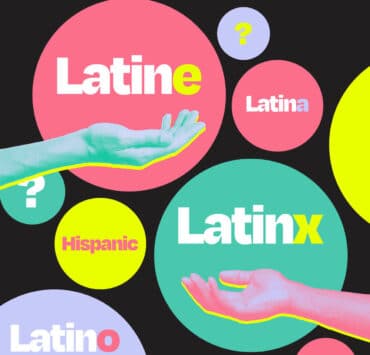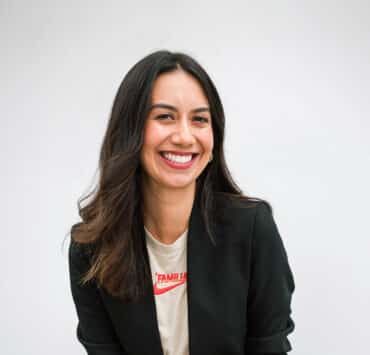|
Getting your Trinity Audio player ready...
|
I was only twenty-six years old when I was invited to join my first board on a national foundation. I had been working in community outreach and HIV/Aids prevention since my teens and felt honored that my queer Latinx voice was being recognized. In the multi-interview process, the board members were all passionate about ensuring our representation, and they greatly expressed the value they believed I could contribute. This was major for me because when most people talk about Latinx inclusion in the boardroom they often exclude other marginalized groups within our community including individuals who identify as LGBTQ+.
However, as early as my first and second board meetings I noticed that it was business as usual for the board and that they hadn’t noticed how lost (and therefore quiet) I was. There was no blueprint for inclusion, so I was forced to muster up the courage to ask questions while trying to not look incompetent, which required a difficult balance of confidence, trust, and feeling the safety needed to express differing ideas. Inclusion doesn’t just happen; it takes time and concentrated effort.
Because there was no blueprint in place, I took it upon myself to share feedback and ask questions to ensure I could access relevant and up-to-date information that would best integrate me into the decision-making processes. And my main request was asking for an assigned mentor from the board who was invested in my success and had a historical perspective of the board and organization that I didn’t. This mentor became a powerful amplifier for me by including me in conversations with higher-ups and sharing my ideas in the boardroom while giving me credit and opening the floor for me to expound on those ideas. This gave me space, safety, and made me a true part of the board.
Queer Exclusion within the Latinx Community
The added prejudice and discrimination we face for our queer identities exacerbates our challenges and creates detrimental disparities even among Latinos. The representation of queer Latinx individuals in leadership roles not only leads to a more inclusive and equitable work environment—time and time again studies prove that safe spaces increase revenue growth, performance, risk-mitigation, innovation, creativity, etc.—but it also creates economic opportunities for an emerging part of the employee and consumer population.
Based on my personal experience in boards, here are five steps for improving representation and creating safe spaces for Latinx LGBTQ+ leaders in the boardroom:
1. Acknowledge the Need for Change
Executive pipelines and corporate representation typically favor the most privileged individuals in society, including the most privileged within a marginalized group. Queer and trans individuals, especially those who are non-white, have long faced active and loud exclusion from spaces of power and influence. The first step toward change is acknowledging the problem with the status quo then beginning to enact the many best practices proven to attract, retain, and promote diverse hires. Change will require a concerted effort and acknowledgement is the first step to charting a new course.
2. Highlight Latinx LGBTQ+ Voices
This Pride Month and beyond, companies should actively seek out Latinx LGBTQ+ applicants, speakers, writers, vendors, etc. and foster an environment in which these folks will feel valued and appreciated. This may include hiring Latinx LGBTQ+ recruiters, creating new outreach and ERG programs, developing mentorship programs with Latinx LGBTQ+ employees, and offering any opportunity available to guide them up the corporate ladder. Executive teams should actively seek out the voices and opinions of their Latinx LGBTQ+ employees and encourage them to bring forward their perspectives in discussions.
3. Create Safe Spaces for Open Dialogue
And for queer employees to speak, companies will need to foster an environment that emphasizes diversity, equity, and inclusion through open dialogue. Leaders can create safe spaces for discussions with Latinx LGBTQ+ employees through their ERGs and by provide training and resources to support such discussions. These conversations can help increase understanding, trust, and foster greater inclusion for all employees. Creating a safe space means allowing more than just honest and hard-to-have conversation without retaliation. It means centering the experience of your LGBTQ+ employees in conversation.
4. Develop Policies that Ensure Equality
Policy and process lead to action and steer companies toward change. Such policies might include protections against discrimination during recruitment, development, and advancement; support for Latinx LGBTQ-owned businesses; benefits and healthcare policies that reflect diverse family arrangements; and availability to well-funded, well-resourced, and C-suite-backed ERGs. Before making any polices official, check in with your LGBTQ ERGs for feedback; if you don’t have one, create a LGBTQ focus group to review all policy changes. Invite and welcome feedback for a collaborative approach to creating safety in policy. Remember information is power and those who have it hold it, so share it.
5. Elevate LGBTQ+ Representation and Hold Leadership Accountable
Hiring more Latinx LGBTQ+ individuals is only the first step; the next and most important step is also elevating them to leadership roles. In addition to developing pathways for Latinx LGBTQ+ job applicants, companies must create pathways to the boardroom. And don’t forget, when conducting executive searches, seek out queer folks who might be otherwise passed over but who are just as qualified. Corporations must hold leadership accountable for meeting these goals, creating targeted recruitment strategies to achieve them.
Queer Latinx individuals bring a unique mix of skills, experiences, and perspectives that can significantly benefit corporate boards, and their representation in the boardroom is essential for sustainable growth and long-term success. It is time for all businesses to embrace the power of representation and create opportunities for queer Latinx individuals to ascend to leadership positions.
The views expressed in this article are those of the author and do not necessarily reflect the position of Hispanic Executive or Guerrero Media.
Julio Roman is a Latinx award-winning LGBTQ advocate and best-selling author who has dedicated over twenty-three years to creating LGBTQIA+ safe spaces and advancing the health equality and social justice initiatives of Black and Brown lesbian, gay, bisexual, and transgender communities, and other marginalized communities affected by HIV/AIDS and its related health, social, and economic disparities. Julio is a founding member and cofounder of two LGBTQIA+ centers in the city of Newark, New Jersey. He often presents and publishes his public health findings on local, state, and national levels. He has raised millions of dollars for LGBTIQ causes, issues, and programs. He has been honored to represent the LGBTQIA+ community on Capitol Hill DC, State Department DC, World Monetary Fund NYC, and the United Nations NYC. He continues to be featured in Insider NJ’s “Out 100: The LGBT Power List” for his leadership in community organizing and HIV/AIDS work.

